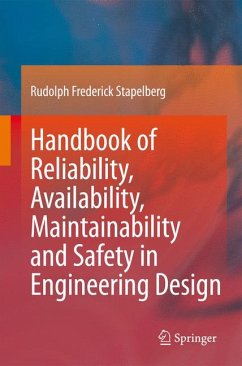
The Complexity of Proceduralized Tasks (eBook, PDF)
Versandkostenfrei!
Sofort per Download lieferbar
112,95 €
inkl. MwSt.
Weitere Ausgaben:

PAYBACK Punkte
56 °P sammeln!
We think we have scientific knowledge when we know the cause. (Aristotle, Posterior Analytics Book II, Part 11) About 12 years ago, when I was a graduate student, many people were concerned about my Ph. D. topic - investigating the effect of the complexity of procedu- lized tasks on the performance of human operators working in nuclear power plants. Although they agreed with the fact that procedures (especially emergency operating procedures) play a crucial role in securing the safety of nuclear power plants, it was amazing that most of them pointed out a very similar issue: "I cannot understa...
We think we have scientific knowledge when we know the cause. (Aristotle, Posterior Analytics Book II, Part 11) About 12 years ago, when I was a graduate student, many people were concerned about my Ph. D. topic - investigating the effect of the complexity of procedu- lized tasks on the performance of human operators working in nuclear power plants. Although they agreed with the fact that procedures (especially emergency operating procedures) play a crucial role in securing the safety of nuclear power plants, it was amazing that most of them pointed out a very similar issue: "I cannot understand why operating personnel see any difficulty (or complexity) in condu- ing procedures, because all that they have to do is to follow a simple IF-THEN- ELSE rule as written. " Actually, this issue is closely related to one of the main questions I was recently asked, such as "Don't you think your work is too acad- ic to apply to actual procedures?" or "I guess we don't need to consider the c- plexity of procedures, because we can develop a good procedure using many pr- tical procedure writers' guidelines. Then what is the real contribution of your work?" I absolutely agree with the latter comment. Yes, we can develop a good pro- dure with the support of many practical and excellent guidelines.
Dieser Download kann aus rechtlichen Gründen nur mit Rechnungsadresse in A, B, BG, CY, CZ, D, DK, EW, E, FIN, F, GR, HR, H, IRL, I, LT, L, LR, M, NL, PL, P, R, S, SLO, SK ausgeliefert werden.












